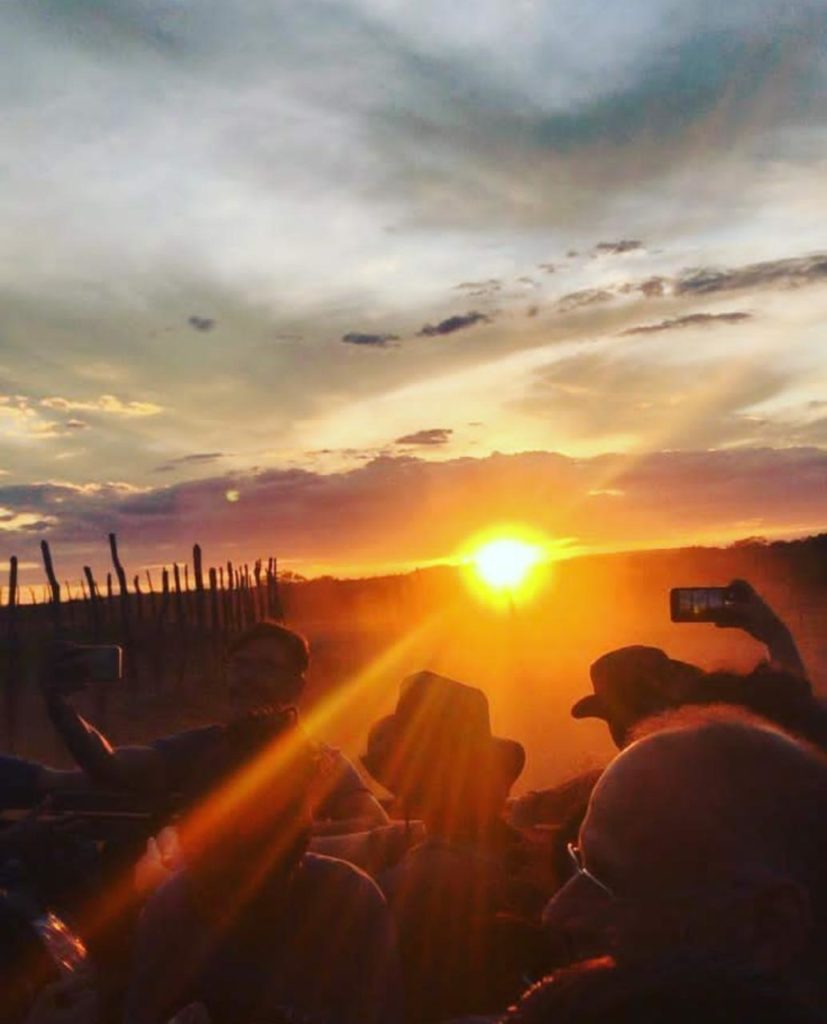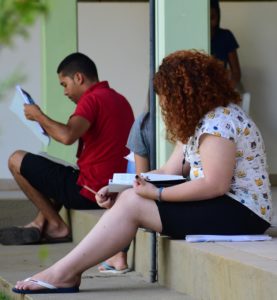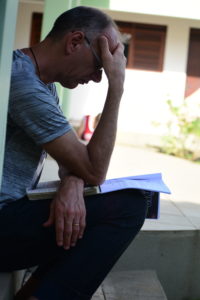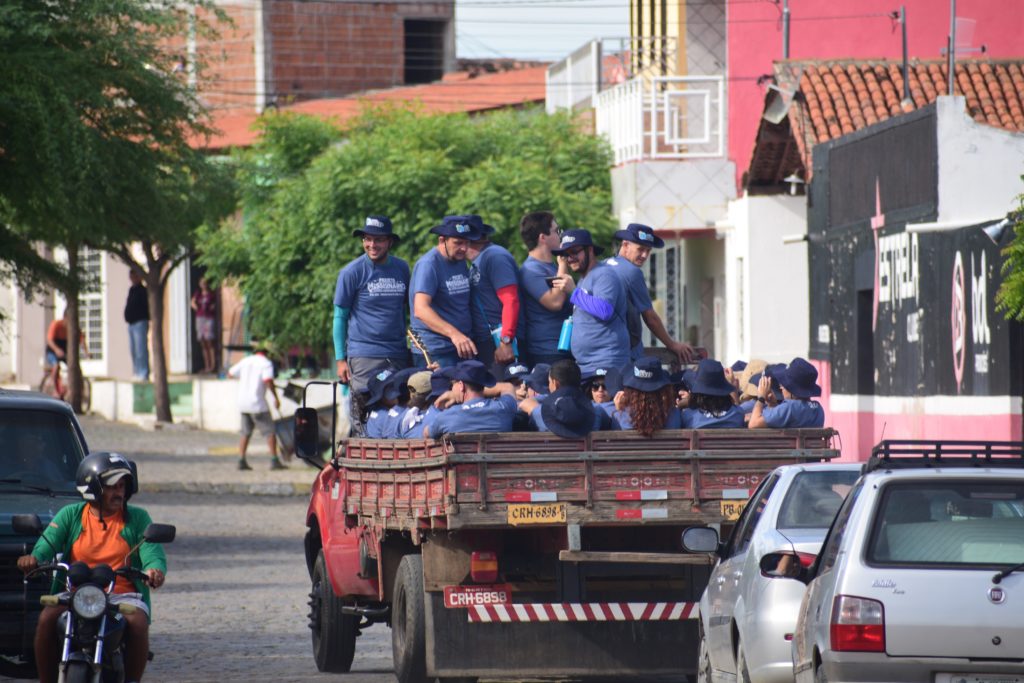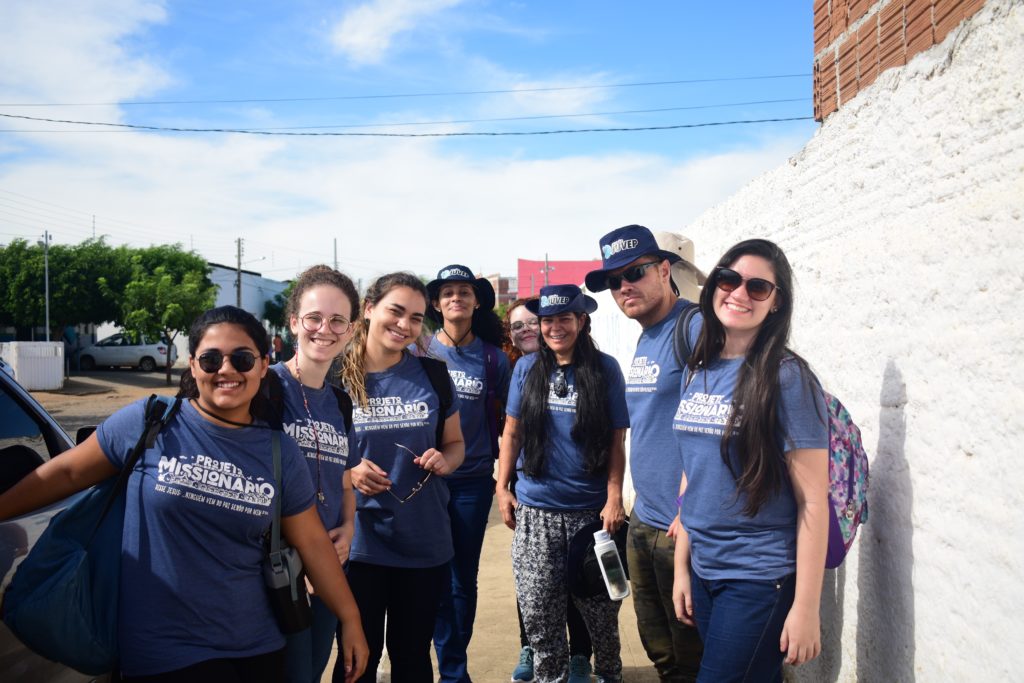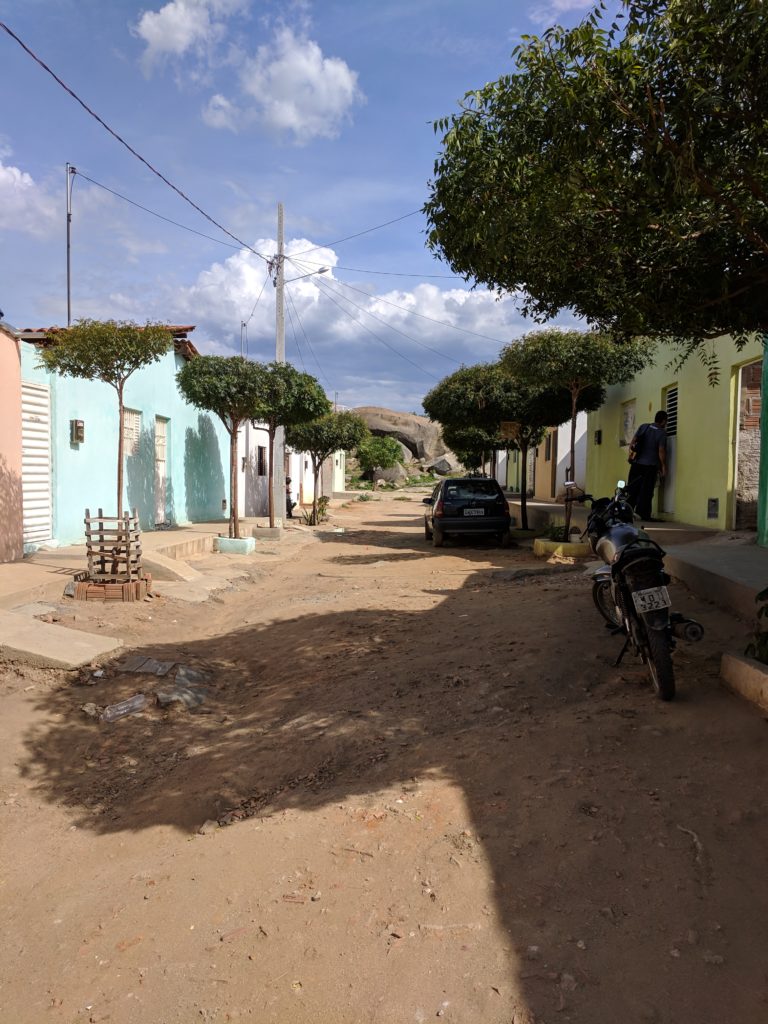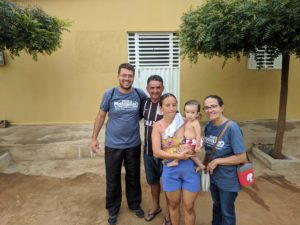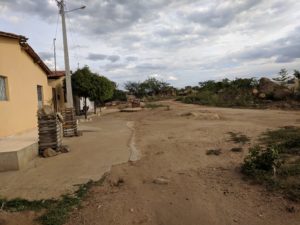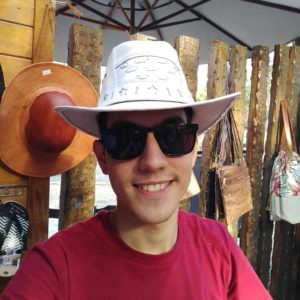Story of Olho d’Agua
The 70th Missionary Project of JUVEP
The story of Olho d’Agua is all about God’s love, challenging and maturing His missionaries who are called to extend love to largely forgotten people. As with any missionary undertaking, only God is in control. In Olho d’Agua, God was glorified by turning difficult and unfortunate circumstances into blessings.
JUVEP is fundamentally committed to spreading the good news of Jesus across the Sertão. The Sertão is an arid region of Brazil where people groups have long fled for refuge. It is relatively isolated, dry and hot with people being poor, and disconnected from the rest of Brazil. This is not an inviting place for pastors and missionaries. There is much idolatry and few Christians in the Sertão. The needs in the Sertão are great.
On Monday, January 7, 2019, 130 volunteers arrived at JUVEP’s “Base Camp” in Cabadelo, Brazil. Cabadelo is a dusty suburb of João Pessoa, the coastal capital city of the State of Paraíba. João Pessoa is a nice affluent beachfront capital city that attracts a lot of tourists. If you look at a map of Brazil, look to the far right. João Pessoa is the easternmost point in the continental Western Hemisphere. It is also known as the second greenest city in the world (according to Wikipedia). But, Base Camp is on a dirt road off of the highway. It is a walled compound with simple facilities to house, feed and provide for the volunteers. Below you will find a short video clip of Base Camp. The little house in the center can be used for practice as it is similar to many houses in the Sertão.
The coastal region gets rain with high temperatures in the 80s. As you move inland the terrain get hot and dry quickly. Fifty miles west of Joao Pessoa looks like a different world. Brown fields with just a few green trees scattered about. This terrain, however, is known as the Agreste. It gets drier further West. Though the Sertão gets rain, it is highly erratic. During the mission trip, God brought abundant rain. So the Sertão was greener than the Agreste. That’s unusual to be sure. Cabadelo was a gentle introduction to life in Olho d’Agua.
Missionarios (as they are called in Portuguese) come from all over Brazil. Many are students or people accustomed to a more comfortable life. So the “camping out” was probably a shock to their system. While inside, the sleeping arrangements were 20, 30 or more twin mattresses or air beds spread over the floor of a large room. Fitting 130 people into the Base Camp compound was tough. Restrooms are centralized, with normal “modern” facilities. This part of Brazil never gets cold, so the rooms always get natural airflow. Normal high temperatures are in the high 80s with overnight lows in the high 70s. Only meeting rooms are air conditioned. There is a central kitchen that provides meals for everyone.
Training proceeded at Base Camp for several days. There was always worship and prayer. It was time to start praying for the people of Olho d’Agua. A missionary without love is not ready for the work of sharing the Good News. So, with more prayer the love for the people of the yet-to-be-seen Olho d’Agua grew. Lectures provided context. For example, the prevalent religious traditions in the town are important to understand. Though very few people in Olho d’Agua knew the Lord, everyone knows of the Virgin Mary. Everyone knows where the Catholic Church is located – right in the middle of town. Faith is a different story. Jesus is secondary. Or, worse.
Other sessions provided strategies for evangelism and opportunities to practice. Fortunately, not everyone was a first-timer, so experienced hands could share their wisdom. The enemy is actively working against the evangelism team, so understanding spiritual warfare is included. God calls us to create disciples. So, preparing to help those who do respond to the evangelism message is vital. We want new Christians to go to a good church and build a fellowship that can glorify God. To grow deep and strong roots into the community and share God’s gift to future generations. Base camp training ends on Thursday.
Friday morning arrives too early with a 4:45 AM wakeup call. It is time to load the buses for the six hour trip to Olho d’Agua. Olho d’Agua is in the Sertao, the arid poor region inland a few hours from Joao Pessoa. January is the rainy season. Some years there is no rainy season, but in 2019 the rains came abundantly and the fields turned green.
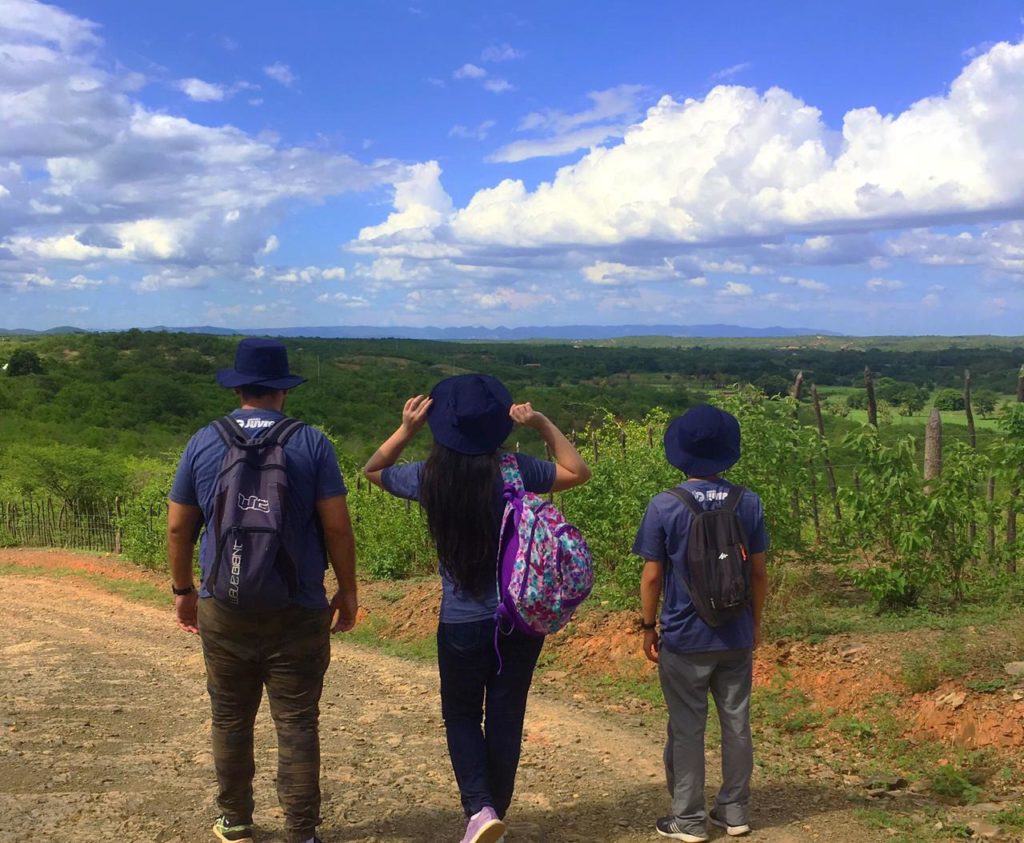
The buses, supply trucks and a few cars rolled into Olho d’Agua. Olho d’Agua is a “modern” city, where the term modern means a few specific things. Like city water, sewer, electricity, access to cell phone service, television, and typical municipal services. Having been to Brazil before and now living in the city of Joao Pessoa, we were struck the appearance of the town. Neat, clean and well maintained. In the tourist city of João Pessoa, there is a lot of trash around (and crews that pick it up daily) and a lot of buildings much in need of renovation. In fact, a lot of buildings are ready for the bulldozer. But, Olho d’Agua was neat, clean and sharp. In many respects, a delightful little town.
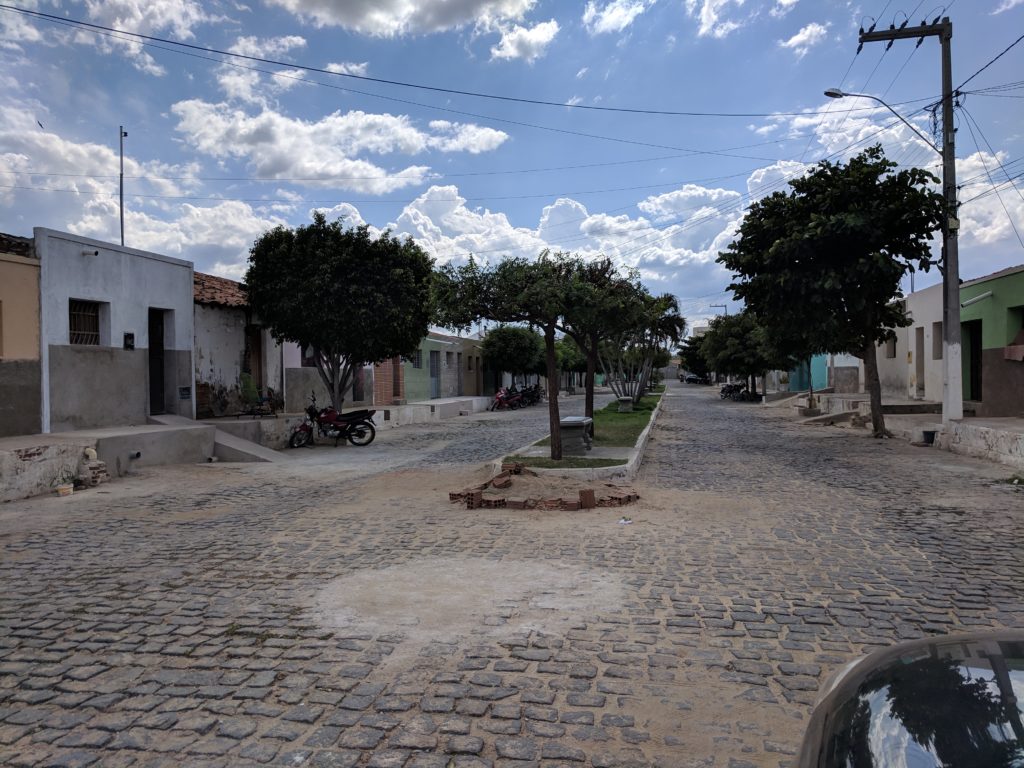
In America, public schools have a hostility to religion. It is different in Brazil. In January, public schools in Brazil are on “summer break,” and a local public school building turned into a temporary home for 130 missionaries. Like Base Camp, conditions were “modern,” but rudimentary. Toilets flushed but the showers were makeshift with plastic sheeting. There was a kitchen and good sized meeting room – fans, but no air conditioning. Meals were taken buffet style with seating outside (but, under a roof – sun protection!). Sleeping accommodations were just like Base Camp, lots of mattresses on the floor. No air conditioning. It gets hot in the Sertao. Normal daily highs are over 95 degrees. The sun is intense.
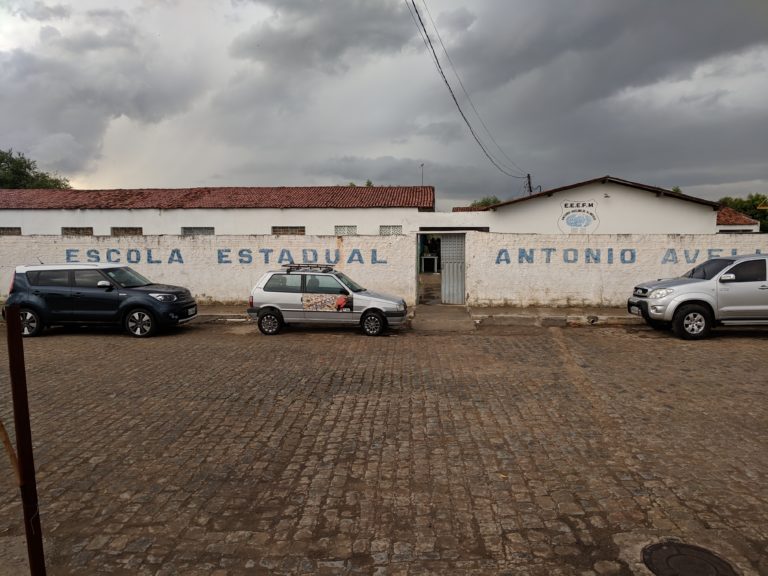
The mission of evangelizing Olho d’Agua drew near. The new daily routine was wake-up, private devotional time, optional shower and get ready for breakfast. Food was wholesome and ample. Nothing fancy. After breakfast it was time for the team meeting. The entire group would meet in the mornings for worship, training, announcements and any updates on the day’s plan. Sergio Ribeiro, the JUVEP Director, was residing on-site, guiding the team day-by-day. After the full team meeting, missionarios would often assemble into smaller team meetings. There were four smaller teams, which were assigned different parts of the town. The smaller teams promoted a tighter bond among team members and a degree of esprit-de-corps. After the smaller team meetings, if time was left, it was available for personal devotions or prayer.
In Brazil, lunch is often the big meal of the day. Lunch was served around Noon or a bit later if team meetings ran late. Of course, preparing food for 130 hungry missionarios was no trivial task. Recall that JUVEP Base camp has full-time staff that prepare meals. (Note that the Center for the Preparation of Missionaries (CPM) provides housing and meals for students at JUVEP Base Camp). Full time kitchen staff came to Olho d’Agua to lead food preparation, with the assistance of a few missionaries. Regular truck runs to Patos, the nearby big city, were needed to restock food and buy perishable vegetables.
Missionarios are still not ready to go out. In this part of Brazil, it is really hot mid-day. Especially in the bright sun. So, it is siesta time. Project team members could nap, pray or socialize. It was hot, but under good shade it was not too bad. When the time came, most missionarios would walk to their assigned areas. A few assigned to more remote areas could ride in a truck. So, avoiding the mid-day heat was wise.
The real work started at 2:00 PM each day. Team members would normally walk to their assigned neighborhoods and go door to door. Most homes are open to facilitate the breeze. So, it is not hard to greet the occupants. Everyone knew why the team was there. In Olho a’Agua there is not much to do. Welcoming missionaries in to talk about Jesus was normal. Such friendly people!
So the plan was to do this day by day. Many homes were visited multiple times. The people were so friendly. Conversations about God, Jesus, the Bible and Mary were generally easy. People would listen, nod and agree. But, the final step of accepting Jesus as Lord and Savior was not so easy. Satan had long been sowing deception. While many Catholics are Christians, Catholicism in these towns has a long history of compromise. Idols are common. Praying to “saints” is an impediment to praying to the Lord Jesus. The good news of the gospel is very hard to find buried under decades of idolatry. And, maybe peer pressure made people reluctant. Needing to go to a simple church. It is so different.
Surprisingly, the Catholic church woke-up. They felt threatened. Taking us seriously was quite a compliment. The Catholic church bussed in 40 young people from neighboring communities to go door-to-door opposing our message. Outdoor Mass was held a unprecedented times. Click below to see a full report. This opposition can be used for good. Now 40 Catholic youth have to seriously revisit their theology and reasons to believe. Seeds are planted for a greater harvest from the Catholic community. Praise the Lord.
Now the Sertao is an arid region with erratic rainfall. A year or more can pass with no rain. Dry, dusty and brown are normal. It is hard to make a living with no water. A few cattle and hardy goats can be found. Irrigated cactus plantations can be found to provide goat food during extended dry periods. So, in this area rainfall is a blessing. Well, the JUVEP missionaries found a lot of water in Olho d’Agua. In fact, it rained so hard that two days of evangelism were canceled. God wanted the team to pray and meditate more. After all, it is God who saves. Taking an extra two days to pray for the people of Olho d’Agua was needed. Plus, the people felt blessed by the rains.
A few more unplanned days at the school did not end the opposition, as rain brings mosquitoes that bring disease. About thirty missionaries came down with intestinal problems. Several wound up going to the emergency center and many would be on antibiotics. Again, the work of spreading the good news was impeded. Fortunately, this passed after a few days and everyone got back to the work of talking about Jesus.
Door-to-Door evangelism went from 2:00 PM to 5:00 PM daily. The team also did a number of special events. Children are anxious to participate in programs that combine some fun with a gospel message. There was a great turnout for children. The next generation is a fertile ground to plant seeds of truth.
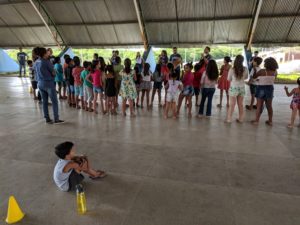
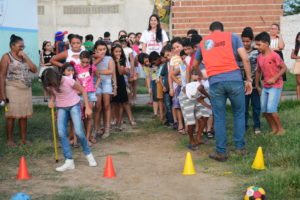
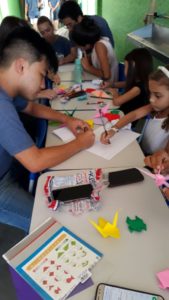
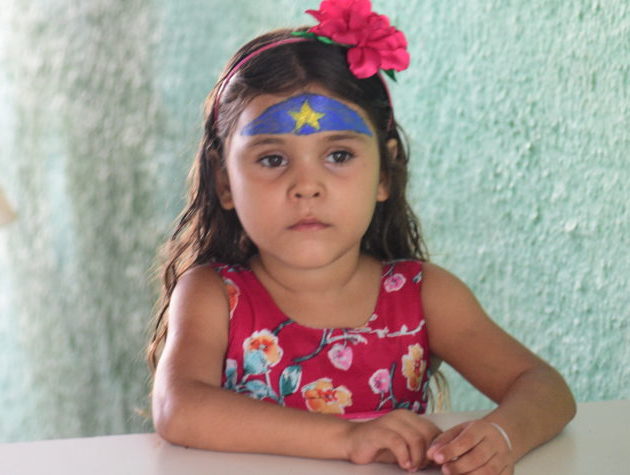
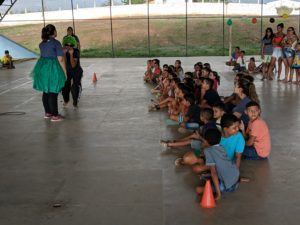
On a number of nights there were special open air worship services. Some residents passionate for the word of God would offer up their street corner for an evening evangelism program. The team would bring in big sound systems and musical instruments. The program would include worship and a testimony. People were encouraged to get right with Jesus. Sometimes large crowds (perhaps 100) would assemble. Since these were at night, people could sit in the shadows, listening and participating.
In Olho d’Agua it is warm at night. While most people have televisions, most prefer to sit outside enjoying the evening breeze. Again, nobody has air conditioning. People living a block away from the program could clearly hear and understand what was happening. The sound actually travels about two blocks (I tested it), but people further away needed to listen more carefully. The point is that many more lives were touched than just the people visible at the event. More seeds are being planted. Doubts are being sown about long held myths.
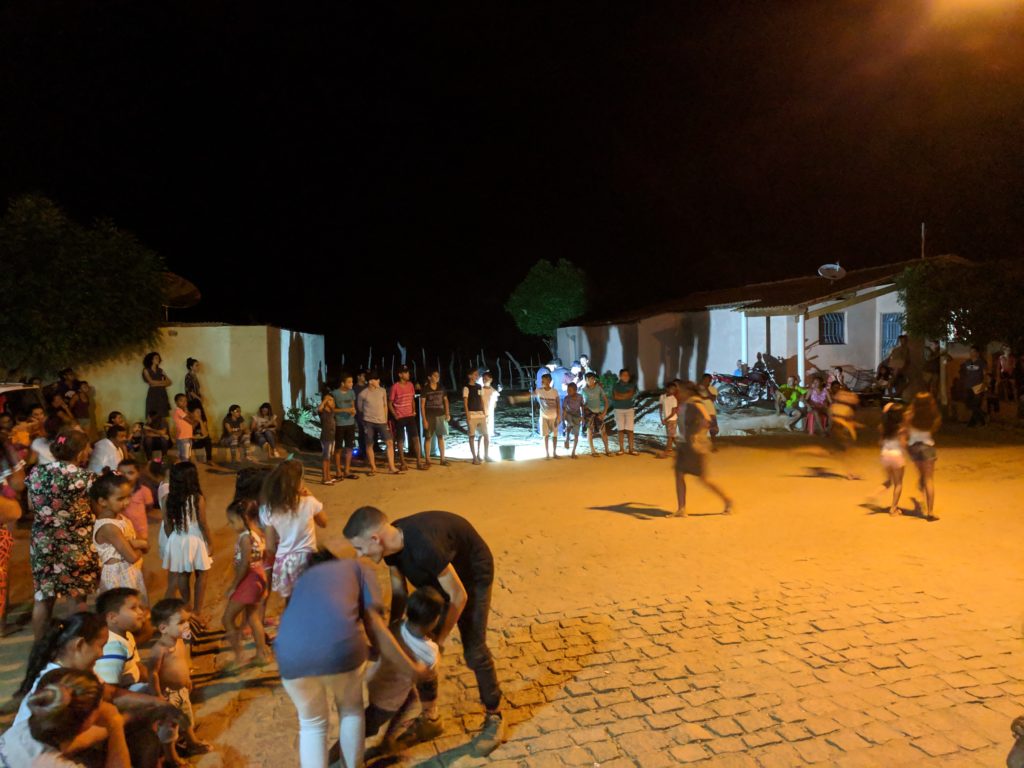
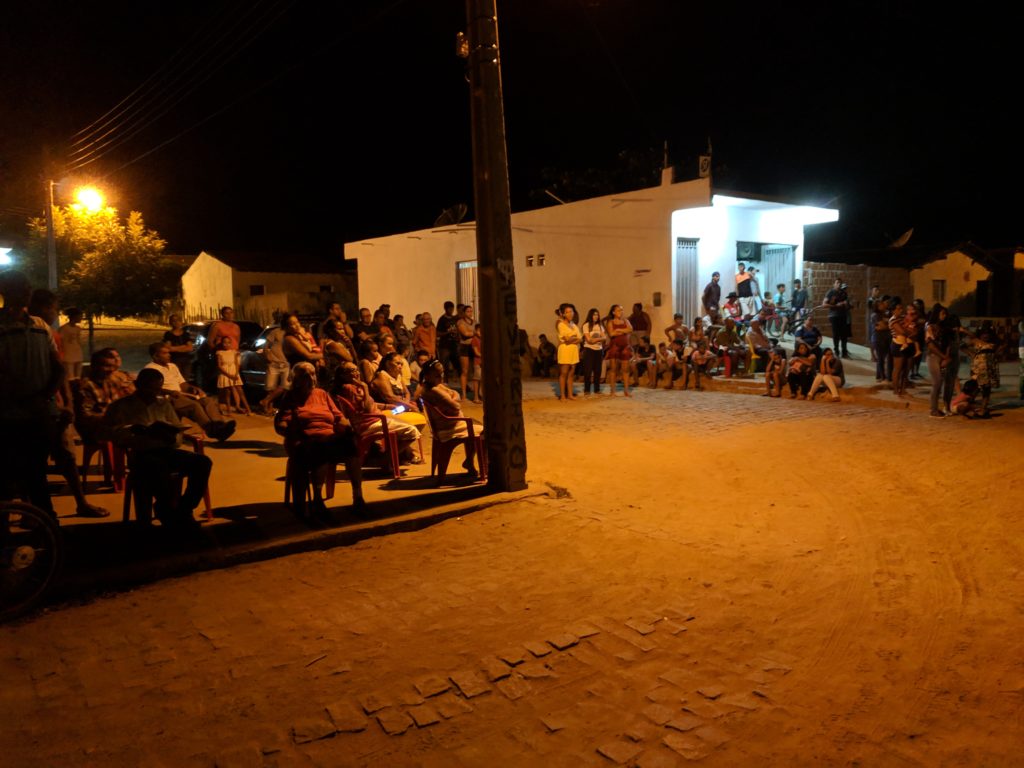
This evening, the children were given special awards for scripture memory. There were about a dozen winners. Here’s a photo of four.
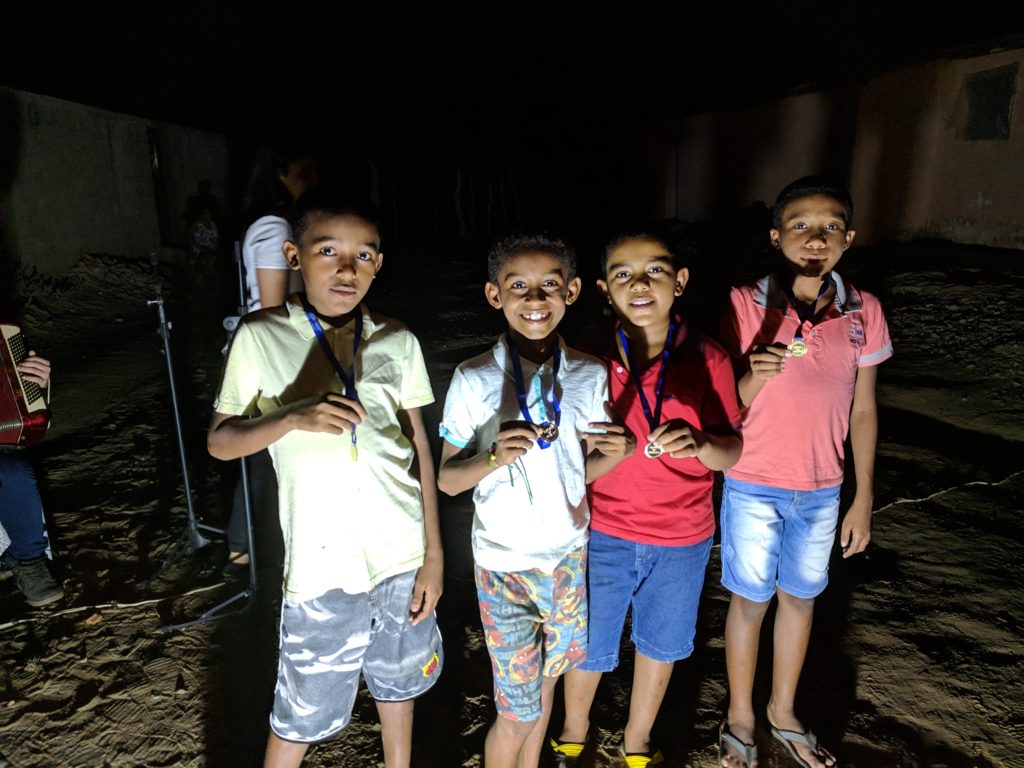
The final night was a big deal. In Olho d’Agua there is a public plaza that is near, but not directly in front of the Catholic Church. The JUVEP team decided to hold their final night evangelistic event there – right in the middle of town. Now, Olho d’Agua is split into three neighborhoods. The big evangelistic service the previous night was conducted on the street in the middle neighborhood. A lot of people walk between neighborhoods, but it takes about ten minutes. So, Saturday night’s event was mostly attended by people in walking distance.
There was a large crowd, including the missionarios and a handful of Christians from a neighboring town that was evangelised by JUVEP in a prior year. But a lot of locals were present too. There was music, a short message from the new Baptist minister, words from the Director of JUVEP, and finally an altar call. A handful of young girls responded to the call and accepted Jesus. Perhaps their parents accepted Jesus during the prior week’s door-to-door work. About 20 adults had accepted the Lord at some point during the project. Or, perhaps the parents not not part of this saved group, were sympathetic to the message, and yet reluctant to take the final step.
With God, this is never the end of the story. We are called to Go and share the Good News. The people of Olho d’Agua welcomed us into their homes. The Harvest is ripe. But, God does the final work.
Will the Good News of Jesus take deep root in Olho d’Agua? God knows. Many hearts were touched. Many people who never gave a second thought to matters of God started to think deeply.
The outpouring of “opposition” from the Catholic Church is likely a huge blessing. The townspeople will be more open to questioning the basis for Catholic doctrine. If the Priest has no idea why a particular “saint” is the object of prayer, maybe the Catholic Church really does lack the right answer. And Praise God for 40 youthful Catholic missionaries sent to defend Catholicism. Now, they too will need to revisit what and why they truly believe. May God grant a great harvest among them.
A small church was planted. Seeds can grow. Prayer is needed for the church to be a “light on the hill” drawing more and more people in. Pray for the new Christians to grow in their faith and share a newfound love for Jesus. Pray that the seeds of the gospel planted in Olho d’Agua will grow strong and deep roots into this dry, normally parched, land. Pray that the good news of the gospel can spread with power across the entire Sertão.
